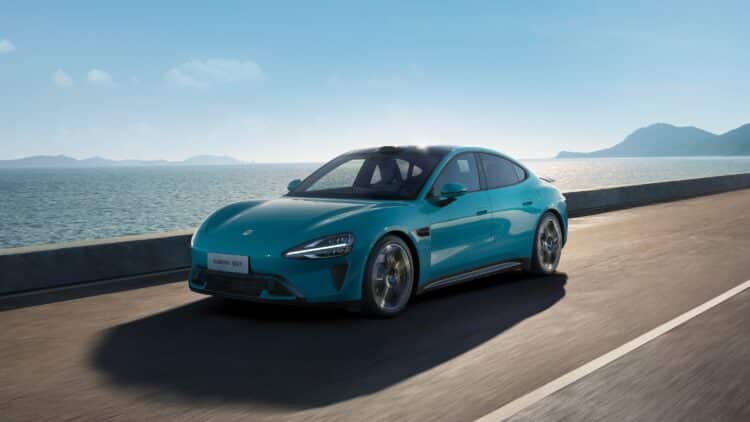China’s electric vehicle market just got interesting. Xiaomi announced Friday it’ll be covering the increase in tax for those who purchase now but get their cars in 2026. This move comes with Chinese EV makers scrambling to safeguard buyers from the upcoming tax policy changes that could cost thousands more. These manufacturers are not providing blanket coverage to all their lines.
Xiaomi babsies customers from China’s changing policies on EVs
Xiaomi’s purchase tax subsidies of up to 15,000 yuan ($2105) for customers who lock in order delivery by Nov. 30, 2026. The incentive is on the company’s full range of electric vehicles: SU7 sedan, SU7 Ultra performance variant, and YU7 SUV. This protection covers buyers from China’s changing tax landscape that threatens to double costs next year.
The tech giant’s move reflects growing concern among Chinese car makers over the changing policy. China’s government extended tax exemption for EVs to 2027, but with lower benefits from 2026. At the moment, the purchase tax exemption is total for buyers, but limited to 30,000 yuan. However, starting in 2026-2027, the exemption is reduced to only half of the standard 10 percent, with the maximum savings limited to 15,000 yuan.
Key subsidy details:
- Maximum liabilities covered: 15000 yuan per vehicle
- Order deadline: November 30, 2025
- Candidates models: SU7, SU7 Ultra, YU7.
- Delivery date: 2026 calendar year.
Chinese car makers rush to provide similar protection
Xiaomi is offering tax rebates to early buyers of EVs who have 2026 delivery orders because of the production delays, which could cause customers to end up paying considerably more than they anticipated. Popular EVs from top brands have massive waiting lists because of huge demand. The smallest production hitches would advance delivery until the end of 2025 and turn into early 2026, which would cause unpleasant surprises in taxes.
Nio introduced similar protection for its third-generation ES8 SUV after selling out 40,000 units within days of the launch on September 20. The upscale EV manufacturer also offers subsidies of up to 15,000 yuan to customers whose deliveries of ES8 fall into 2026. Li Auto also responded accordingly on September 30, providing the same protection for Li i6 electric SUV buyers who ordered before October 31.
Production delays threaten customer confidence nationwide
The race for subsidies indicates deeper concerns about China’s EV manufacturing capacity. Xiaomi received 240,000 locked orders for its YU7 SUV in just 18 hours of opening up reservations in late June, according to the company’s CEO, Lei Jun. The company has delivered over 40,000 YU7 vehicles by the end of September, but massive order backlogs make deliveries uncertain for thousands of customers.
Manufacturing bottlenecks aren’t new to Xiaomi. The whole EV sector of China faces the problem of high demand that is much more than the production level, forming months-long queues for the most sought-after models. These delays are putting these customers at risk of losing significant tax benefits through no fault of their own; therefore, manufacturers need to offer financial insurance against their own production limitations.
Industry consolidation accelerates amid policy uncertainty
“A long wait for delivery could subject buyers to additional costs next year, as China’s tax breaks for green cars are due to halve the exemption to as much as 15,000 yuan per vehicle.”
Timeline of EV tax changes:
- 2024-2025: Complete exemption up to 30,000 yuan
- 2026-2027: Half-rate taxation with a 15,000 yuan cap
- 2028+: Full taxation expected to return
Xiaomi’s announcement of a tax subsidy indicates the seriousness that EV makers in China put into the coming changes to the policy. By providing financial cover against their own delays in production, companies such as Xiaomi, Nio, and Li Auto are in effect admitting that demand has exceeded their manufacturing capabilities. This subsidy race can be the new normal since the EV market of China will become mature as government subsidies slowly fade.


